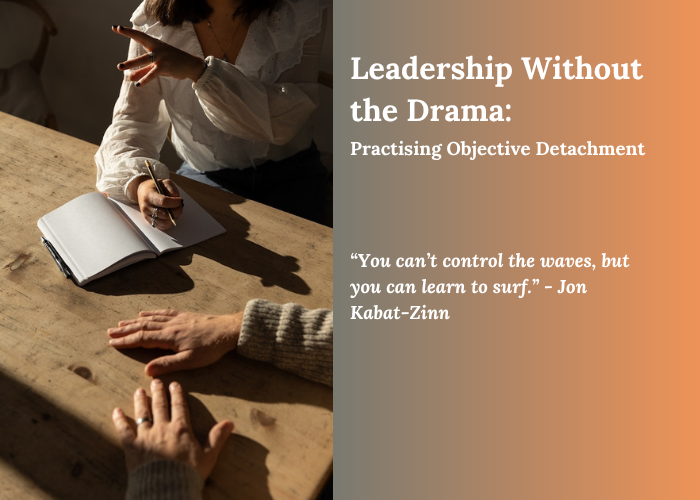Blog
Why Founders Need to Balance Stakeholders Like Switzerland
Founders often lean too heavily toward employees, clients, or shareholders — and it creates tension. Here’s how to stay neutral, make better decisions, and build a more sustainable business.
How to Hold Yourself Accountable as a Founder
Accountability is one of the hardest challenges founders face — especially when no one is checking in. Here’s how to stop hiding, move faster, and become the leader your future business needs.
What relationship do you have with your business?
Is your business too dependent on you? Learn how founders and leaders can evolve their relationship with the business for long-term growth.
Share Before You’re Ready
Discover why confident leaders seek feedback early and how structured conversations lead to stronger buy-in, better ideas, and smarter decisions. Learn how to set up effective feedback sessions and identify where early input can make the biggest impact.
What is the primary focus of a leadership team?
At some point, one person running everything just doesn’t cut it. A strong leadership team isn’t a nice-to-have—it’s essential. This blog breaks down the 4 key functions of a high-performing team: preventing founder overwhelm, reducing solo accountability, bringing specialist expertise, and challenging the status quo to future-proof your business.
What tasks or responsibilities should be delegated?
As a founder, delegation can feel like walking a tightrope—delegate too soon and risk chaos; too late and you burn out. This blog shares a practical 3-criteria framework to help you delegate with confidence, protect your energy, and scale sustainably. It’s about finding the “just right” zone—your own Goldilocks sweet spot.
What are the qualities of a good leader?
Discover the 5 essential traits every great leader must have—humility, proactivity, resilience, agility, and expertise. A must-read guide for founders building a strong leadership team.
The Founder’s Guide to Taking a Real Holiday (Without the Guilt or Laptop)
Are you taking a real holiday—or just calling it one while replying to emails on the sly? If you’re a founder, the “pseudo holiday” trap is real. In this post, we break down the three types of breaks leaders tend to take—and why only one actually helps you reset, reconnect, and refocus. If you're serious about long-term success (and the people you care about), it’s time to aim for Option 1.
Beyond Clients and Teams: The Forgotten Stakeholder in Your Business
Most leaders prioritise clients and teams—but what about future you? Learn why considering your own future is key to sustainable business success.
Delegate the Pace for Smarter Business Management
Discover why founders shouldn’t set the team’s pace and how delegating this role leads to more consistent performance, sustainable growth, and better business management.
Why Founders Must Become Teachers to Build High-Performing Teams
To grow a sustainable, successful business, founders must slow down, share their knowledge, and guide their team. Here’s how teaching builds stronger teams
What does a business leader do?
If you want to empower others to lead more so you can lead less, then you have to be clear which parts of the business you want them to be accountable for going forward. This is a crucial part of the transition from founder-led to a leader-led company.
How much is leadership coaching?
Most founders and CEOs who purchase business coaching are doing so for the first time, so it can understandably be difficult to work out how much to spend. They may recognise there is a gap and a need but aren’t sure either how to spend on closing that gap. As a guideline coaching will be an investment of between 1-3K per month for a typical SME depending on the a number of factors outlined below.
How Do I Get My Team to Run the Business Without Me
Learn how to build a leadership team that can run your business day-to-day—so you can focus on growth, not operations.
Leadership coaching vs executive coaching
Discover the key differences between leadership coaching and executive coaching—and learn how leadership coaching can help your growing business develop confident, capable leaders.
How to Build a Proactive Business Plan That Actually Works
Struggling to shift from reactive to strategic leadership? Learn 3 essential steps to refocus and proactively scale your business with confidence.
How Leadership Coaching Helps Founders Let Go Without Losing Control
This is the question we normally get to after our initial exploratory session with an overwhelmed but still ambitious founder. At this point they have a fundamental choice to make which impacts their own future but also that of their employees, and the company itself.
Not All Business Coaching Is Created Equal: How to choose the best fit
As the business coaching industry has evolved over the last 5 years in particular the offerings available to companies looking to invest in coaching have increased. Like most growth industries niche offerings appear giving the buyer more options but at the same time potentially more confusion as to what to buy.
Why Most Founders Feel Trapped—And the Deep Work Fix That Frees Them
Founders crave freedom. They would love to spend more time on their business and less time in it. They can become frustrated and, at times, overwhelmed by the reliance on them, but the blind spot is that it’s a self-created dependency, as they are missing one crucial element.
Leadership Without the Drama: Practising Objective Detachment
The theme this week, walking our talk.
It is very easy for a coach to suggest a behaviour or way of working to others, but in many areas of life, it is more challenging to apply the same advice to ourselves. This week in TRC, we have spent time focusing on one such subject: Objective Detachment.




















